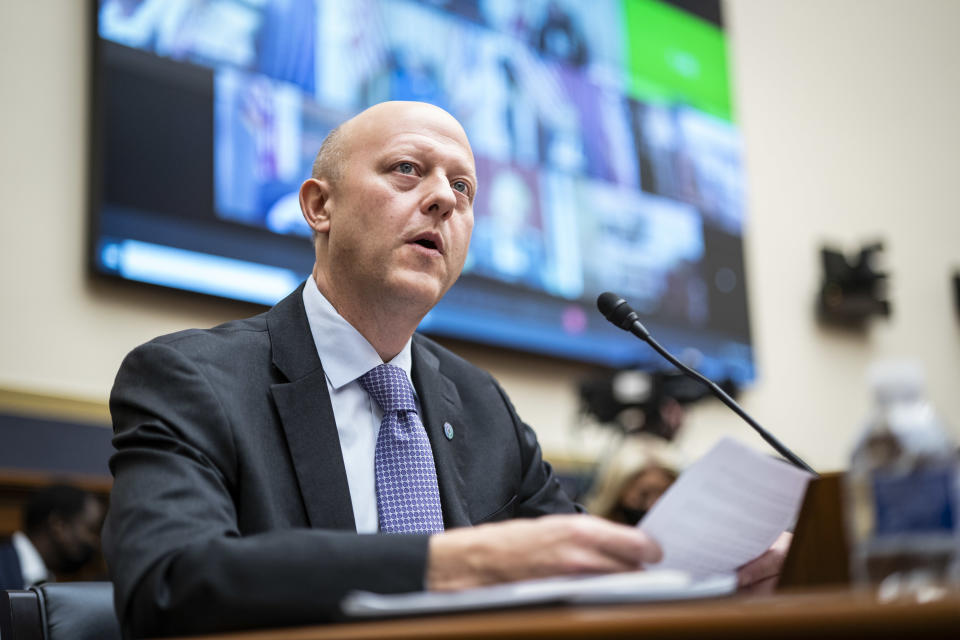Digital currency will help the US dollar maintain its power and underpin a new infrastructure for transactions and exchanges, Circle CEO and co-founder Jeremy Allaire told Yahoo Finance at the World Economic Forum in Davos, Switzerland.
“Currency competition in the future is a technology competition, it’s not just a monetary policy competition,” Allaire explained. “The dollar is the world’s reserve currency, but the US can’t take that for granted.”
Circle — the issuer behind the stablecoin USD Coin (USDC-USD) that’s pegged to the US dollar — is a key player in the $135 billion stablecoin market. USD Coin is the second-largest stablecoin with a current market cap of more than $25 billion, according to CoinGecko.
The company, which confidentially filed for IPO last week, has been building a platform that allows near-instant settlement of transactions and low-cost global payments. The ability to use the US dollar more efficiently for cross-border transactions is one way that the currency can continue to lead the pack globally.
“I think the opportunity internationally is, you know, how can digital dollars play a bigger and bigger role in humanitarian aid, in the effective use of remittances and international transactions?” said Allaire.


Despite rapid growth and wider adoption within the stablecoin market, the US has not yet passed a regulatory structure for the digital asset — a necessary next step for the digital dollar.
“There is a digital currency space race, and the US needs to put laws in place that allow for digital dollars to thrive, and allow the private industry and regulated private markets to grow,” Allaire explained.
Last year, the House Financial Services Committee passed the Clarity for Payment Stablecoins Act, a bill that would establish a regulatory framework for the digital asset class. But its advancement was halted by Democratic opposition, which has kept Congress from considering the legislation.
While regulators have been slow to enact crypto-asset regulations, the SEC’s recent approval of a spot bitcoin exchange-traded fund has provided some clarity for investors and will likely attract billions more into the digital currency as a result. In a note to clients last week, Bernstein analyst Gautam Chhugani wrote the decision “makes bitcoin exposure accessible” and will help drive “unprecedented” flows to bitcoin.
Chhugani and his team estimate the total crypto asset management industry will grow from $50 billion today to $650 billion by 2028.
As to whether growing interest in digital assets, along with geopolitical shifts, could challenge the US dollar’s dominance, Allaire didn’t rule it out.
“[On] the question of whether a commodity money like gold or a digital commodity like bitcoin could play a larger role as a store of value or a reserve asset, I’m open-minded about that. … I think that could grow over time,” Allaire said.
Read the latest from the World Economic Forum in Davos, Switzerland:
Seana Smith is an anchor at Yahoo Finance. Follow Smith on Twitter/X @SeanaNSmith. Tips on deals, mergers, activist situations, or anything else? Email [email protected].
Click here for the latest crypto news, updates, and more related to ethereum and bitcoin prices, crypto ETFs, and market implications for cryptocurrencies
Read the latest financial and business news from Yahoo Finance

















